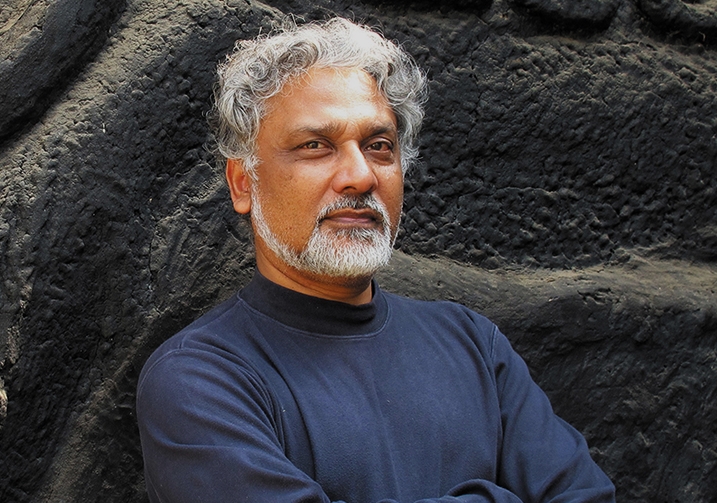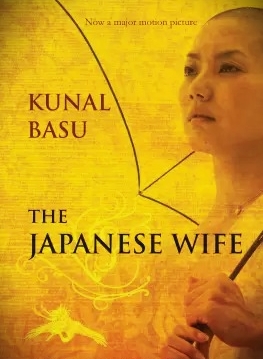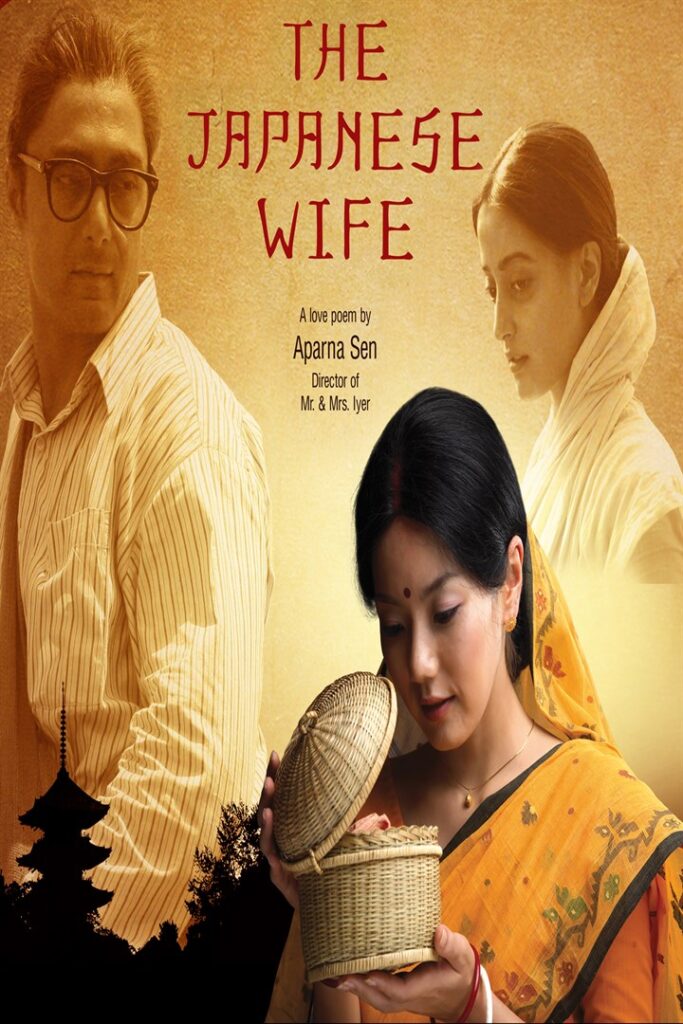Suresh Chandra Sarangi
The Japanese wife, written by Kunal Basu, already an elegant motion picture, directed by Aparna Sen, is a beautiful epitaph on love. The story is nothing but sublime love. The characters are more alive than the living creatures on Earth, and the intricate relationship is just not a figment of imagination, rather a few drops of tears on the cheek of eternity.

It is a book on evocation and the splendid story and its remarkable characters bring life to the dead letters that dance before our eyes, with pure hope and faith on universality of love. Of course, Kunal Basu has the audacity and dexterity to bring forward this love sublime to the ultimate finale with candid faith and unforgettable romanticism.
The motion picture is a wonderful portrayal of a beautiful love story shot in a picturesque natural environment, with all the joys and sorrows of rural life and unbridled happiness that meets the eye. Not only evocative but impassioned for life, the zest, the curiosity, the elegant flow of incredible love, the green paddy field, the flamboyant river, all are waves of bliss, depicting the fountain of life on a splendid canvass.

The lyrical romanticism is full of rural diaspora, the lush green forest, the shining flowers and the dark clouds with a thunderous appeal is really a cinematic expression of the greatest order. The waves of life move on like the waves of the sea, crashing against the earth in the shore again rising to be another wave as they are the part of the sea.
Aparna Sen’s camera focuses candidly on the waves of life and makes it the best possible panoramic expression. All the characters orchestrated a beautiful symphony, with grace conveying the lyricism of life. Life moves on. The versatility of the cinematic expression is unmatched that reflects the rhythm of life amidst natural ambience. It is fun, music, drama, melancholy, fever, love, dreams and ultimately the cool hand of death, where you take a long rest with eternity.
The story line is superb. It is not a novel but a short story which has been dramatized with a bit of mysticism laced into it. Snehamayi a school teacher with BSc mathematics is a boy with a difficult childhood who loses his parents at an early age and is brought up by the widowed lady with tremendous love in heart.
Snehamoy, mathematics upper primary school teacher, in the rural Sundarban had created a pen friend with Miyagi of Japan that blossomed into deep love over a period of 20 years. They hardly spoke fluent English, but went on writing to each other, about each other. Miyagi sends him a big box containing kites, shawls, socks, shirts, toys and many other things including dolls.

The relationship becomes intense and a versatile story unfolds based on platonic love. Snehamoy, an orphan, who grew up with the widowed mausi, a near relation, after the death of parents who were devoured by the raging Malta River.
Gradually, everyone comes to know about the relationship including the students. In the meantime, Snehamoy discovers that a new widow girl with a child has moved to their place. She is the ill-fated daughter of mausi named Sandhya who became a widow at an early age and because of maltreatment, she left her in-laws house and came to stay with mausi for rest of her life.
The little boy, who is being tutored by master Snehamoy, builds good link and attachment grows. Sandhya the widowed girl silently loves Snehamoy from behind the doors and tries to capture his attention. So the love triangle blossoms with Snehamoy torn apart in the love triangle, though his love for his Japanese wife was stronger. He sends her vermilion to be put in her forehead, bangles, a symbol of a Hindu married life, and symbol of eternal love. Both of them can not meet each other though they need it desperately.
Snehamoy does not have the means of going to Japan and Miyagi cannot come to India because of her mother’s illness. Desperate Snehamoy goes to the river Malta for consolation as her mother was drowned in the river due to severe flood. Snehamoy feels the river and its waves are a reflection of his mother and provide continued solace to satisfy his questions regarding life and injects hope into his lifeblood. The flowing river depicts the continuity and flamboyance of life.
Mausi once asked Snehamoy regarding marriage of her widowed daughter Sandhya with Snehamoy and the proposal was not accepted by Snehamoy. Mausi is crestfallen and her dreams in relocating her distressed daughter falls like a dead butterfly.
Snehamoy says the same to Miyagi as well. Miyagi is very much possessed with Snehamoy and advised him to put shocks in the rainy days to get rid of leeches, to sleep under mosquito nets to avoid malaria. In one kite flying competition, Snehamoy participates with his Japanese kite that Miyagi had sent, the competition becomes a symbol of India versus Japan as it usually happens in any game in India and it ultimately wins the war.

Miyagi’s mother dies and when she was contemplating to come to the picturesque Sundarban where Snhehamoy lives, ill luck strikes her with cancer and Snehamoy is devastated. He cannot go to Japan to oversee the treatments as he did not have the resources. One day despite Mausi’s denial Snehamoy goes to post office to talk to Miyagi in torrential train and got drenched. He came back, suffered from high fever and was diagnosed with pneumonia.
Snehamoy breathed his last, Sandhya’s hope and dreams crashed and little son of Sandhya is clueless, mausi remains devastated and Miyagi’s eternal love perishes like the waves of the sea. On a fine morning Miyagi appears at the village with a white saree, a symbol of widowhood in India with a bald head and the rickshawallah takes her to Masai’s living room where she meets Sandhya. Touches Snehamoy’s bed, the toys, the photographs, and continues to stay there amidst the letters, with her memorabilia and life takes a cruel turn.
The writer depicts the subtle love in all its charm and the river of life flows on .Water and river have been used as beautiful metaphors and the river symbolizes life with all its fanfares, tragedy, hope and dreams. It is a story of remarkable love, without parallel, unadulterated, pure and sublime.
Life’s upheavals have been so beautifully captured and its dreams like the kites flying high and low. Those who have viewed the picture in the cinema hall were with tears and trapped in the mysticism and life and understood and experienced a beautiful language of love.
(Suresh Chandra Sarangi is former General Manager, Bank of India, and lives in Bhubaneswar. Views are personal)
Tags: #BookReview #KunalBasu #IndianAuthors #TheJapaneseWife #lyricalRomanticBooks #BookBlogger #ReadingCommunity #BookRecommendation #FancyBooks #JapaneseStory #WritingCommunity



























